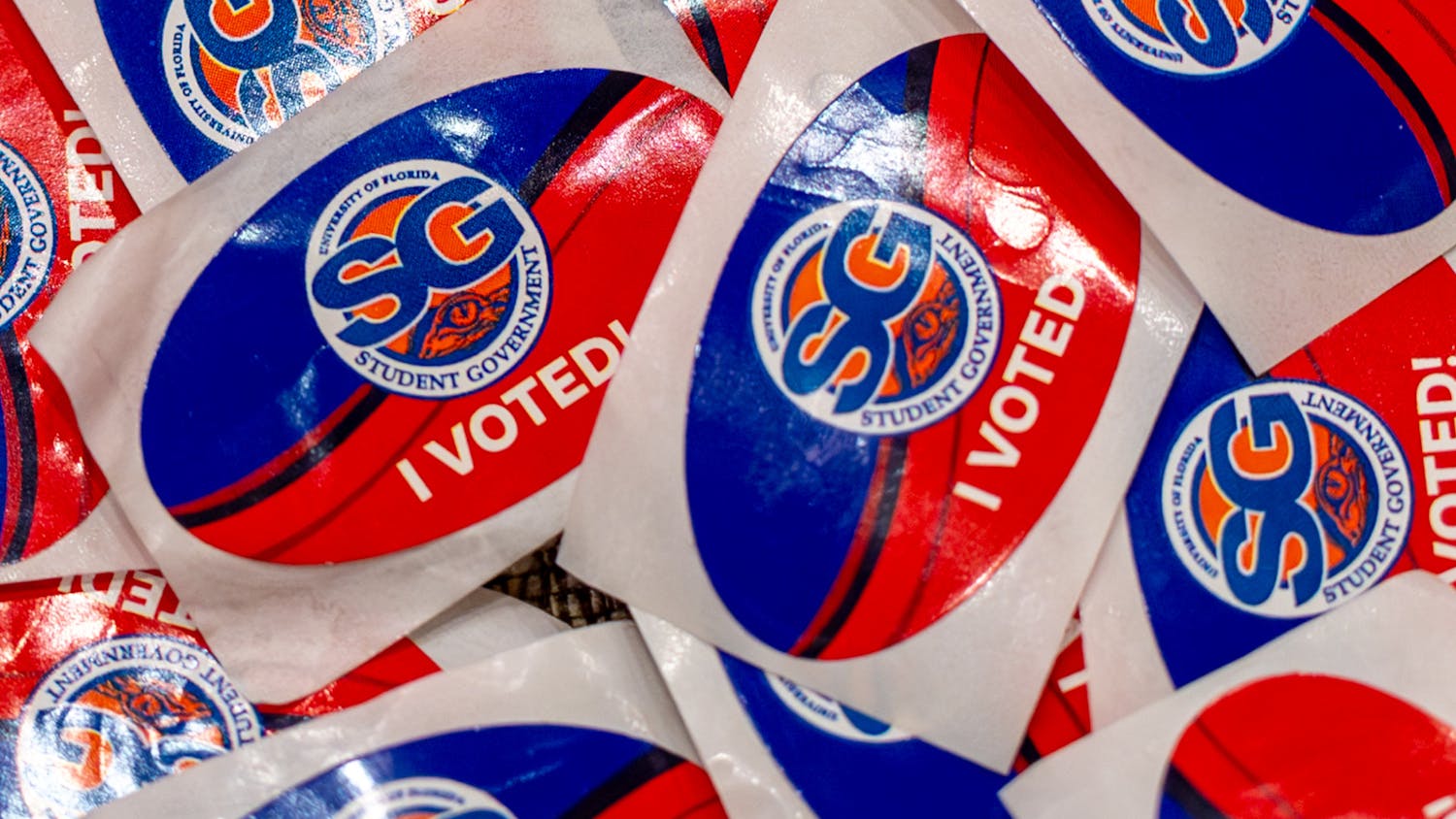For freshmen, eating can be a challenge. You’ve been thrust into a new environment, and you’re feeling the birth pangs of your newfound adulthood. Nostalgic for your family and the nutrition they gave you, you must now cut the umbilical cord and find your own source of nutrition. How can you do this without starving or going broke?
Follow these simple rules.
Rule number one: Don’t, don’t, don’t buy a meal plan. The meal plan is an absolute scam. The food looks great during Preview, but it’s not that great once you’ve got a meal plan, especially not at such a steep price. The portions are small, badly cooked and don’t taste very good.
I’m not blaming the staff of the Gator Dining locations. They do the best they can with the resources they’re given. They work really hard, but until there are some major changes with the dining program, it’s not worth the money.
Besides, why would you deprive yourself of the experience of learning how to stand on your own two feet by cooking your own meals? It’s better to learn to cook for yourself now as a freshman, while you have time, rather than finally conceding as a junior, when you’ll have significantly less time.
Rule number two is to develop a plan. This rule requires a couple of steps. The first step is to determine what your body requires in order to thrive. Harvard’s Nutrition Source website is an excellent resource. The major parts of any meal should be vegetables and protein. Grains aren’t seen as the “staff of life” anymore. A diet of ramen noodles might keep you alive for now, but you might be making plenty of hospital visits later in life. It’s much cheaper to just eat right now, and it doesn’t have to cost too much.
The second step of this rule is to come up with a list of potential meals for yourself for breakfast, lunch and dinner. Maybe breakfast is eggs, spinach and some orange juice. Maybe one night’s meal consists of chicken, mixed vegetables and rice. You don’t have to come up with a ton of different, complex meals. Keep it simple, silly. One night’s chicken might be in a spicy stir fry, while the next night’s chicken could have a more Latin flavor.
If you need ideas for meals, just look them up on the Internet. There are plenty of sites dedicated to college students specifically.
The third step of this rule is to figure out the hardware you need and get it. If you’re reading this while your parents are still in town, recruit their help. You might need a fridge, a pan, a pot and a spatula. That’s all I needed for a while.
Rule number three is to buy in bulk. This step, the actual buying, is the trickiest because you probably don’t have a car. Fortunately, Gainesville’s bus service is superb. Familiarize yourself with where the stores are and which routes travel there. Be aware that routes are different on weekends. Download the TransLoc Transit Visualization app to track the buses in real time.
I highly recommend a Sam’s Club card. It’s a little bit of a walk from the bus stop to the store, but if you go frequently enough the membership will more than pay itself off.
If you think that you don’t have time to make one trip a week to the grocery store, then make time. I promise you that you can make time for this trip. Make sure you bring a big backpack with you and maybe even a couple of totes.
The fourth rule is to buy frozen goods. I can’t emphasize enough how awesome buying frozen is. There has been some debate as to whether certain foods are more nutritious when purchased frozen or less nutritious. In either case, I’m not sure you can go too wrong buying frozen. It’s way cheaper than buying fresh, and canned is probably poisonous thanks to Bisphenol A (BPA).
The fifth rule is to have fun with it. At first, you won’t know what you’re doing. Start out by following some recipes as closely as you can, or ask a friend about their techniques. Just keep at it, and before you know it you’re going to want to start experimenting. As always, exercise safety. Never leave the stove unattended!
The last rule is on spoilage. There are three ways of knowing if a food is not safe for eating, and they’re all free, provided by evolution by natural selection. The first is to use the nose, because the nose knows. That fantastic device can detect if the chemicals in a food have become infested with organisms or compounds that are bad for you. If it smells bad, don’t second-guess your nose — It knows!
The second way of knowing if your food is spoiled is to use your eyes. Sometimes your seasoning will keep the food smelling nice, but if you just look at it, then you’ll know that there’s something growing on it.
If your vision is impaired, remember what seasonings you used and the smell of the food before it was stored. Any amount of spoilage will yield a different smell, but sometimes it’s too subtle for most to detect.
The last method to use is the taste test. If it tastes bad, spit it out and throw it away. It won’t nourish you. It will poison you.
A good diet coupled with exercise and enough sleep should make for a healthier body and mind. It’s an investment. Not only will you feel better, look better, and do better in class, but you’ll save on those hospital visits I mentioned earlier.
It might seem like a lot now, but you’ll have it all down in no time, champ.
This story originally ran on page 27 on 8/14/2013 under the headline "Rules for college eating: Make a plan, buy frozen food, have fun"





